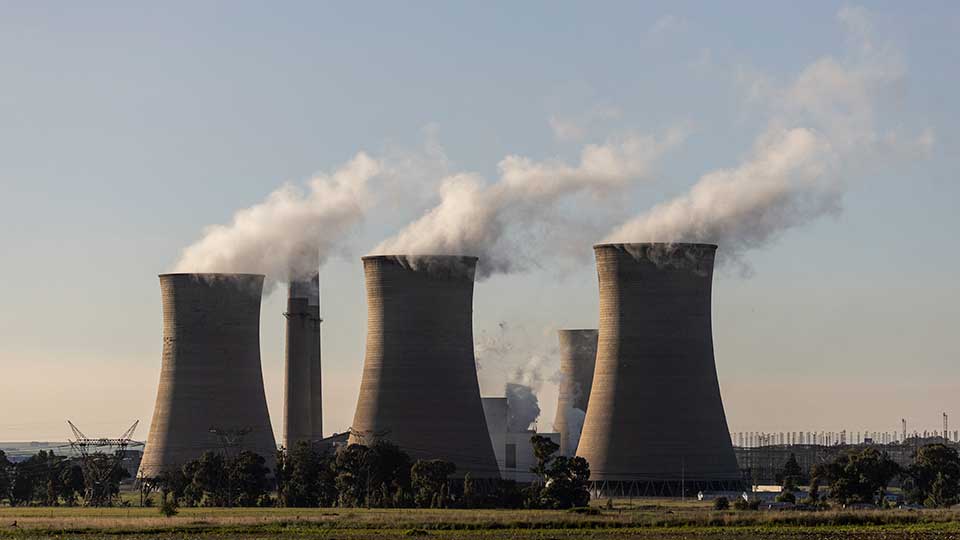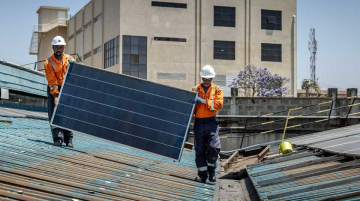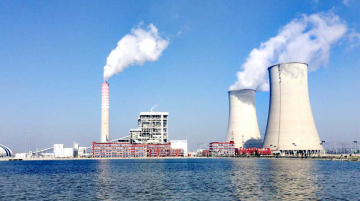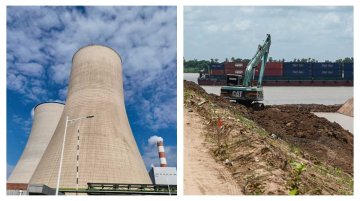
By Niccolò Manych and Tsitsi Musasike
The future of the electricity system lies in renewables, both globally and in Africa.
Although a green energy transition has multiple benefits for African nations, many continue to rely on fossil fuels, such as coal, with some even in the process of building new coal plants. While this approach may have been justified in the past to spur economic development, renewables—in particular solar, wind, and small hydropower plants—can now provide the same benefits as coal but at reduced costs.

Source: Authors’ elaboration using data from Global Energy Monitor 2024. Note: ”Pipeline” includes private and state-owned plants that are announced, permitted, in the pre-permit stage, or under construction. These plants might not necessarily be realized.
The early phase-down of coal plants can yield various advantages, including significant emission savings and health benefits by decreasing premature deaths. In economic terms, replacing uncompetitive coal plants with cheaper renewable alternatives could yield substantial savings for electricity consumers, as coal power is often uncompetitive compared to renewable alternatives, frequently requiring heavy subsidies.
In line with the high costs of coal power, many state-owned enterprises (SOEs) reliant on coal are experiencing financial difficulties, amongst them Eskom in South Africa and Zimbabwe Electricity Transmission and Development Company (ZETDC). Phasing down coal plants could reduce fiscal stress for governments and mitigate the risk of stranded assets faced by utilities and investors.
Development finance institutions (DFIs) can play a pivotal role in supporting governments in harnessing these benefits. They are uniquely positioned to facilitate coal plant phase-down initiatives given their expertise and experience working in the energy sector, their mandate revolving around poverty alleviation and economic growth promotion, and their ability to offer low-cost and/or long-term loans.
A new report by the Boston University Global Development Policy Center advances a variety of policy options for DFIs to support the early phase-down of coal plants. These policy options can be categorized into three groups, as shown in the chart below. The first group centers on supporting enabling environments in host countries, the second on banks’ willingness to support coal plant phase-down endeavors, and the third focuses on the direct funding of phase-down projects.

Abbreviations: Climate Investment Funds (CIF) Accelerating Coal Transition (ACT); Asian Development Bank (ADB) Energy Transition Mechanism (ETM); IDB Invest, the private sector arm of the Inter-American Development Bank (IDB) Group; World Bank Eskom Just Energy Transition Project (EJETP).
Of the existing initiatives in Figure 1—all Western-backed—, three have already been rolled out on the African continent. The Just Energy Transition Partnership (JET-P) is operational in Senegal and South Africa, while both the Climate Investment Funds (CIF) Accelerating Coal Transition (ACT) and the World Bank Eskom Just Energy Transition Project (EJETP) are aimed at coal plant retirement in South Africa.
While these are promising first steps, significant criticism has been voiced, including a major concern for the reliance these initiatives place on commercial loans. For example, the $497 million EJETP primarily relies on a $439.5 million World Bank loan provided on commercial terms. This adds pressure to public finances that are already strained and not fully recovered from the pandemic. Other concerns highlighted by South Africa’s Presidential Commission on Climate Change regard the effects of coal plant transitions on workers and communities, as well as economic development and energy security. These factors are vital parts of any coal plant phase-down approach and highlight the importance of proper planning in future coal plant retirement initiatives.
China has been conspicuously absent on this issue, even though it is well-positioned to launch its own initiatives.
Recently, China set out to green its overseas investments. In October 2023, China launched the Green Investment Finance Partnership (GIFP), its own version of a China-led green climate fund, which will be deployed towards energy transition as part of a green Belt and Road Initiative (BRI). The development of a China-led Just Energy Transition Partnership (CJET-P) would, therefore, come as no surprise as China is already building investment platforms similar to those developed by Western economies. These initiatives present an opportunity for China and Chinese DFIs to take a leading role in the continent’s early coal plant phase-down.
Domestically, China retires its coal plants relatively early, with an average age of 21 years, and has pledged to reduce coal usage at home in the near future. In addition, China has signed BRI Memorandums of Understanding (MOUs) with 50 African countries and the African Union, signaling cooperation and financial integration. Hence, China has the experience and the influential position to guide African countries in adopting the best strategies for early coal plant phase-down.
Chinese DFIs have been involved in the BRI since its inception in 2013 and are already actively engaged in Africa’s energy sector, for instance, coal. China has financed the expansion, rehabilitation, and/or maintenance of coal power plants in African nations, notably Zimbabwe‘s 600MW Hwange Coal Power Station, Morocco’s 350MW Jerada Coal Fired Power Plant, Botswana’s 600MW Morupule B Coal Power Plant (2009) and South Africa’s Medupi and Kusile coal power stations. China, therefore, has a full appreciation for the financial impact of operating these assets on the respective country’s economy and could re-finance loans through its involved financial institutions.
In short, China’s DFIs can support early coal plant phase-down efforts in African countries by fostering enabling environments in host countries, shaping the market, and directly funding phase-down projects on an asset level. African countries often consider China as their development partner of choice, given the amount of Chinese investment on the continent to date, which comes with less political demands than Western investment.
Forging ahead, China can assist countries in their coal plant phase-down efforts, leveraging existing relationships to solidify its role as a reliable partner of African countries for green energy transitions.
Niccolò Manych is a Post-doctoral Research Fellow with the Global Economic Governance Initiative at the Boston University Global Development Policy Center. He earned a PhD in Political Science from Technical University Berlin.
Tsitsi Musasike is a Professor of Global Development Policy at the Frederick S. Pardee School of Global Studies at Boston University and a Core Faculty Member of the Global China Initiative at the Boston University Global Development Policy Center. She has over 20 years of cross-functional financial management and infrastructure financing experience in the private sector, private equity, consultancy, investment banking, and development finance environments.







